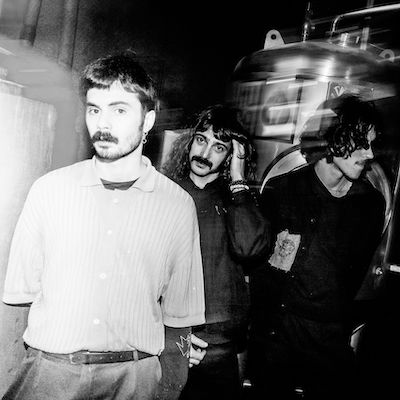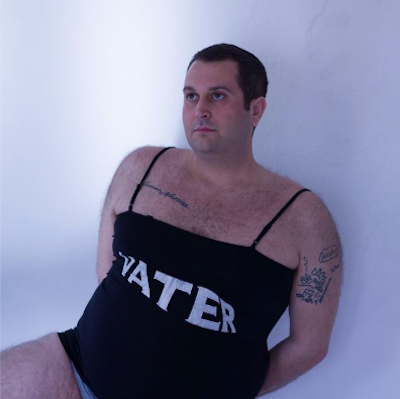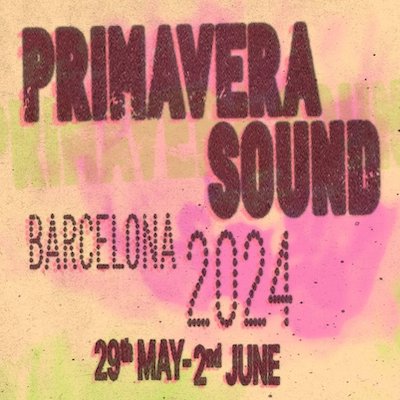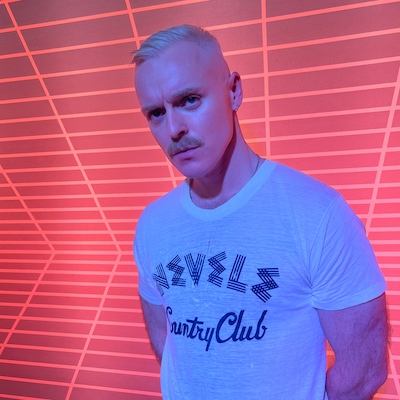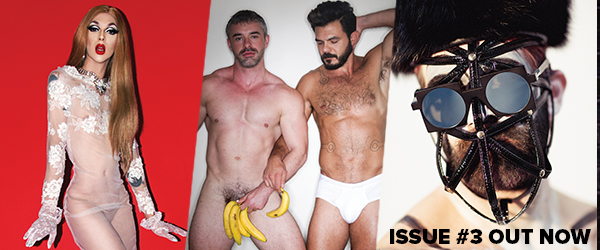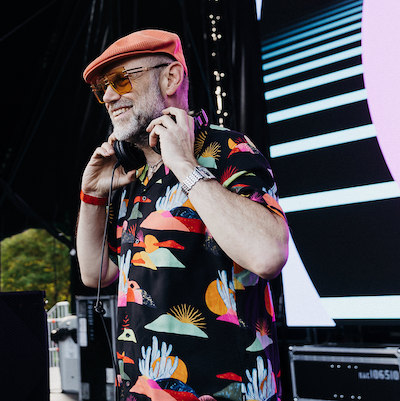
Dave Lee is the man behind many of Loveryboy’s key musical moments. From being the Joey Negro and dropping the anthemic ‘Make A Move On Me’, to bringing mysticism to Ministry with Jakatta and even being responsible for Take That’s cover of ‘Relight My Fire’. All major.
Now Dave is not only revisiting his AC Soul Symphony alias but also the 70s, specifically those iconic TV theme tunes that delivered disco, synths and strings. Think ‘Six Billion Dollar Man’ and more. Recording the album with a twenty-piece orchestra, Metamorphosis sees Dave create over two hours of rich, interplanetary disco, all looking to the seventies for inspiration and which all began with ‘Manhattan Skyline.’
Dave talks to Loverboy about his new album Metamorphosis, the biggest moments of Jakatta and his un-released Mariah Carey remix…
Hello Dave! Thanks for doing this. What music is playing while you answer these questions?
I’m listening to a recent comp called ‘Too Slow to Disco, The Yacht Soul Covers Vol 2’ – soul artists doing cover versions of things like Beach Boys and Steely Dan. It’s a good album! I’ve also been playing an LP from earlier this year called Human Synths by House Horns – its one of the guys from Talc (who I really liked) and kind of like a brass-heavy Level 42. Many times I’ll just put the radio on and listen to Mi Soul, Solar, or DJ faves off Mixcloud – I like to hear new music and not just be selecting it.
How long has this idea been gestating before finally coming to fruition?
My first proper outing as AC Soul Symphony was when I made a cover version of David Shire – Manhattan Skyline, one of the more obscure tracks off the Saturday Night Fever soundtrack. I always liked the chorus of that track, and the bridge, and I was listening to it one day and thought that I could do a good version of this if I kept those parts and did some new sections which alternated with them. When I do a cover, I want to know that I can contribute something new to it, I don’t want to just end up with a sound-alike with louder drums, I want to be able to add my own spin musically. I really enjoyed making the Manhattan Skyline track and it turned out well, and then when I was talking to someone about it, he misheard me and thought I’d said I was doing an entire AC Soul album, which is what actually sparked the idea. That was during lockdown, so about three years ago now!
Was there apprehension at the beginning?
Yeah, I suppose so, because I wasn’t sure how I was going to do it – the actual scoring of the music and strings. I’d done that before with the Jakatta album, but that was supported by Ministry of Sound who had helped me recruit the people to do it and ultimately footed the bill, so it was a very different process. That one was for a much broader audience off the back of some hit singles whereas this album is self financed and less commercial.
I was a little bit unsure about how I’d approach the process, if I’d get the strings to sound how I wanted them to sound. I’d tried doing it remotely with people overdubbing the MIDI files that I’d send them, but it just wasn’t working out how I’d hoped. Though remote can work for some stuff, generally I still much prefer working in the studio with musicians and that way so you can make sure it’s how you want and avoid the boring back-and-forth over email.
It’s kind of wild thinking back to those 70s/80s US TV themes and how major they were. Which were your favourites?
I love lots of them, especially the cop/sci fi shows. I really like Kojak but BPM-wise I felt was a bit too fast for the AC Soul project, I wasn’t sure what I’d do with it. Charlie’s Angels is another obvious iconic one from the 70s which I like a lot. The New Avengers and Six Billion Dollar Man were favourites which I managed to include on the album but my versions are quite different to the originals, which was the aim. I’ve got a list of potential theme re-works on my phone, and a few of them which I’ll try on the second AC Soul album – if there is one.
When I started the album it was initially going to be all TV themes, but then I got a little bit into it and felt it needed to be a bit broader than that, so I included some remakes of string-heavy disco tracks that were favourites of mine which I felt I could do a good version of, like Windy City Theme. This also allowed me to write some original music of my own.
Did the UK have equivalents? Or what was happening here in terms of TV themes?
Yes we had lots, John Barry is an amazing composer, The Persuaders is great plus some of the James Bond stuff like Space March.Then there was the Avengers and New Avengers, The Saint, Department S, the Protectors and the soundtracks for all the Gerry Anderson shows like Thunderbirds, UFO, Captain Scarlett, Joe 90 are all really exciting. The UFO Theme even became a big northern soul fave. We had some phenomenal composers here doing similar stuff; Alan Harkshaw and Alan Parker are two who spring to mind
If you were to take any TV themes from the 2020s which would make the cut?
You know what, I don’t actually know. I don’t watch that much TV now, especially compared to when I was a kid but when I do, the shows often have much shorter music intros and tend to get straight into the action to hook people in. I liked the theme for House of Cards but it’s more of a mood creator than an actual theme with a hook.
For me the title track and ‘The Mystery, The Moment’ are my favourite. Could you tell me a bit more about these two tracks.
Thank you. It’s easier to be sure of a composition when it’s a cover version of a song you love and know. You are buying off the peg as its already something you know “works”. Writing a memorable instrumental can be difficult if you’re not doing it regularly, writing traditional verse-chorus-vocal-based songs is also very difficult to do well, but I guess there’s a well-worn blueprint to work to. For “Metamorphosis”, I worked with a London-based Greek musician called Dimitris Dimopoulos. Before he arrived at the studio I put in a bassline which I’d been humming for a while, then we wrote some chords over it, that although they were quite standard, gave us a wide harmonic scope to record some big string lines which could become the focus of the track. The music completely changes in the second half of Metamorphosis, I referenced a jazz track that has some quite Spanish-sounding chords which I thought was an interesting style and progression that I hadn’t really explored before. Though our song doesn’t really sound anything like the inspiration, that was the starting point that led us there. The early versions sounded pretty crap – drum loops, MIDI piano, MIDI strings, so then the process was to start replacing all these elements with real instruments and develop the song to the point that you hear on the album. For most of its life it was instrumental and called “Heaven and Hell” – the title was changed then vocals were added right at the end – in fact the version on the vinyl (which had to be sent off to be pressed many months before release) it is still an instrumental.
You work with a 20 piece orchestra on the album. Had you written out the exact music you wanted before or was there room for improvisation from both you and the orchestra? How did you balance it?
You have to be very prepared and make sure the music is really organised with every note worked out beforehand. There will obviously be some changes on the day as the players are all seeing it for the first time when they arrive, and the Musician’s Union rules meant that in the full day we had with the orchestra, we could only record 40 minutes of music. So in our score we weren’t repeating anything, even if a riff was repeated in the final production I only needed it played once. The strings from the album were condensed so that we could fit as much as possible into the day. Of course you have to think on your feet and make sure everyone is in tune, the players need run throughs so they have a chance to get their heads around the music
in front of them, but you don’t have any time for experimentation.
I don’t imagine it’s that easy to just bring a 20 piece orchestra back in the studio if you want to redo anything? Did that create added pressure?
Yeah of course, it’s just an expensive process so you have to make sure you’re as prepared as you can be. I’m lucky that I can afford to even try and do it, but it’s still a lot of pressure to get everything recorded for an entire album in 8 hours – especially if you are particular about the way you want it to sound.
Will there be a live show with the orchestra?
I’d love to, but it’s such an expensive process that you have to be absolutely sure that the demand is there to create enough tour dates so that you can justify it all. We did it with Sunburst Band and that was difficult enough with a much smaller line up. You’d need to be filling the Royal Albert hall to make AC live viable. A lot of work goes into writing a show for that many musicians, and I wouldn’t want to compromise on the main aspects of the project by relying on major parts of the music being pre-recorded and run from a laptop. This means there would be a large amount of personnel, at least 20. If you’re touring that’s a lot of flights and hotel rooms, so it’s unlikely to happen any time soon unfortunately.
I have to revisit 1993 for a moment with me, aged 12, loving Relight My Fire so much I had to push myself out of my internal closet to go buy the CD. Thank you for that key moment. What are your memories of that time?
A guy I knew from a TV show put me in touch with Take That’s A&R Nick Raymond who wanted the band to “make a disco record”; I played him the original Dan Hartman version of Relight My Fire which was never really a hit in the UK. It was a great song that I always felt would be a good one to do a cover version of with the right band. The A&R loved it, we recorded it a month or so later. Initially it was Robbie singing but then the label decided to have Gary re-do the lead vocals. The management got Lulu in to do Loleatta Holloway’s lines, I was sceptical she was the right person but she sang her parts really well. I’d released a reasonable amount of remixes and my own records at that point, but nothing as successful as this was – we finished it and delivered to the label, within a week I was hearing it in newsagents and coming out of cars. It was a different level of success, definitely nice to do something like that!
You worked on a lot of mixes for M People and that whole Hacienda period is totally mythical to me. I always wanted to go. What was it like being part of that huge scene?
I was never really part of the Hacienda scene personally as I was living in London and there were many great clubs here, but I played there a few times but that was mid 90s. I recall going up there for PAs in the late 80s and early 90s – it was such a great time for house music, a great time to go out clubbing, a great time for ecstasy. Compared to going out where I grew up in Essex where the clubs were a bit moody and violent – the Hacienda was just full of loved-up people, even though I’m sure some of them weren’t always like that. In fact I recall going back to Oscars in Clacton on Sea (near where I grew up) during this period and everyone was loved up there too – it was a great advert for ecstasy. At the time, we never saw it as a ‘golden era’ – it
was just ‘now’. You never realise it was a golden era until it’s over – maybe some people will
see now as another golden era in thirty years?
Jakatta was a huge project and I’ve seen some huge production performances on YouTube from you. What was the most surreal moment of that era’s success?
Recording the strings for that album was incredible – it was a 40-piece orchestra and we did it at Abbey Road. They had a room where they could raise and lower the ceiling to change the acoustics which was pretty cool and cost a fortune. Also going to LA to record with Seal, that was an experience unlike anything I’ve had before or since. Also Jakatta had 3 top 10 pop hits in a short period and a crossover album. I’m not diminishing the music but a lot of the success was down to the expertise of the team at Ministry and the marketing – for me to put something out now independently and achieve that level of success, I’d have to make something absolutely unstoppable, and that doesn’t happen very often. When you’re plugged into a major label you have a huge machine behind you with radio pluggers, promo videos etc – it’s a completely different beast.
And I have to ask how did you approach Victoria Beckham’s iconic, ‘Let Your Head Go’? Did you hear back from her about the track?
That was a long time ago! I can’t remember exactly, but I definitely didn’t hear word from Beckham HQ. When you’re doing something more commercial it’s a bit more pressured because you know they’re looking for a really big mix, they don’t want something too soulful or niche – it needs to have universal appeal so that thousands of DJs all over the world can play it, and that’s quite difficult, especially when you’ve usually got to turn it around pretty quickly. You don’t have time to experiment with lots of different ideas, ruminate and consider the options – you have a play around then pick a direction and go with it. Sometimes it works, sometimes it doesn’t. I don’t really take that kind of remix work on anymore – I prefer to spend a bit more time on things without the pressure and get them to be the best I feel they can be.
Lastly we are named after Mariah’s Loverboy and always ask what is your favourite Mariah track?
I did do a Mariah remix once for a track called ‘The One’ – I turned it into a house track but it didn’t ever get released. I like many of her more housey songs but favourite Mariah track is probably Say Somethin’ with Snoop Dogg.
AC Soul Symphony’s Metamorphosis is out now



